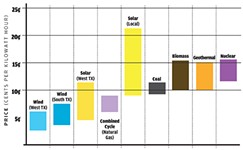From Decriminalizing Pot to Banishing Junk Science
The Lege considers a host of criminal justice bills
By Jordan Smith, Fri., March 15, 2013
A host of criminal justice bills were scheduled to come up for committee hearings in both chambers of the Texas Legislature as we went to press Tuesday. Here's a quick-hit guide to a small selection of the bills being heard:
First up, the Criminal Jurisprudence Committee was set to consider a pair of proposals worth checking out. For drug-law reformers, Rep. Harold V. Dutton Jr., D-Houston, has again filed his modest proposal to downgrade criminal penalties for possession of small amounts of marijuana. HB 184 would make possession of up to one ounce of pot – or synthetic pot – a fine-only class C misdemeanor. The penalty would increase to a class B misdemeanor – punishable by up to six months in county jail – for folks popped three times or more for holding an ounce or less within a two-year period.
This is at least the fifth time he's filed this legislation – perhaps this time will be the charm.
Reformers seeking to inject a bit of rationality into the state's often knee-jerk laws regarding sex offenders will be at the Capitol for the hearing on HB 879 by Rep. Lon Burnam, D-Fort Worth, which seeks to exclude from the state's sex offender registry detailed information about an offender's place of employment. This is a modest measure that would improve public safety by making it easier for offenders to gain, and to keep, employment. Under the proposed law, employer information would remain available to police tasked with monitoring registered offenders and would only be eliminated from the public portion of the registry.
Indeed, the Senate Criminal Justice Committee was also slated to consider an identical matter (SB 369), authored by the committee chair, Sen. John Whitmire, D-Houston. Even more important, the Senate committee was scheduled to take up Whitmire's SB 344, which would allow for appeals of criminal convictions that were based on junk or outdated scientific evidence – from discredited and junky dog-scent lineup evidence to the outdated trifecta of symptoms once considered the hallmark of so-called shaken baby syndrome. The bill would ensure that courts could grant a defendant relief based on relevant scientific evidence not available at the time the person was convicted. This is the third time this measure has been filed, and the time is ripe for it to pass.
Got something to say on the subject? Send a letter to the editor.










